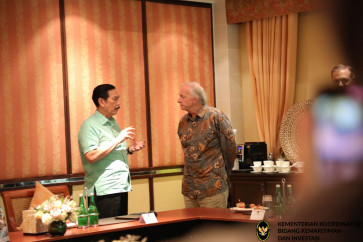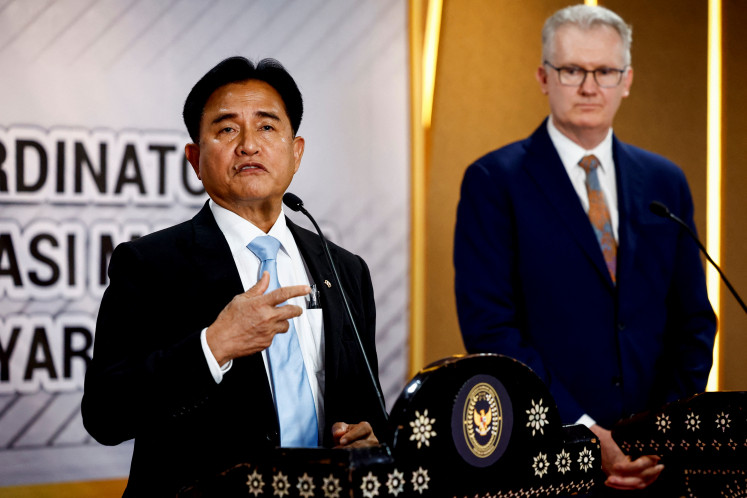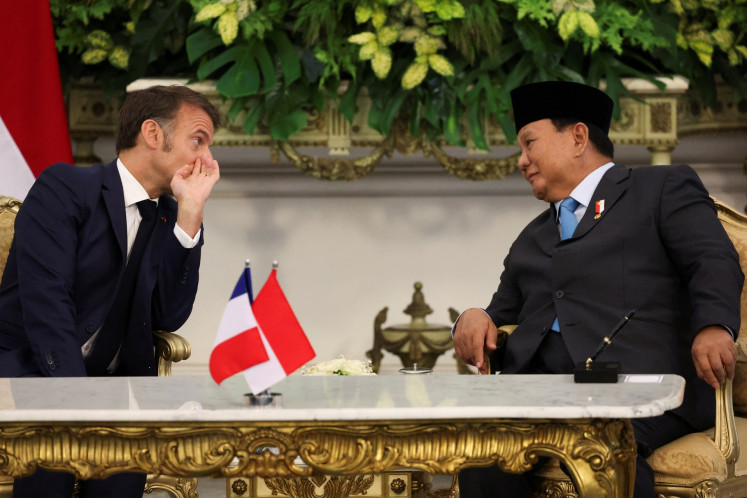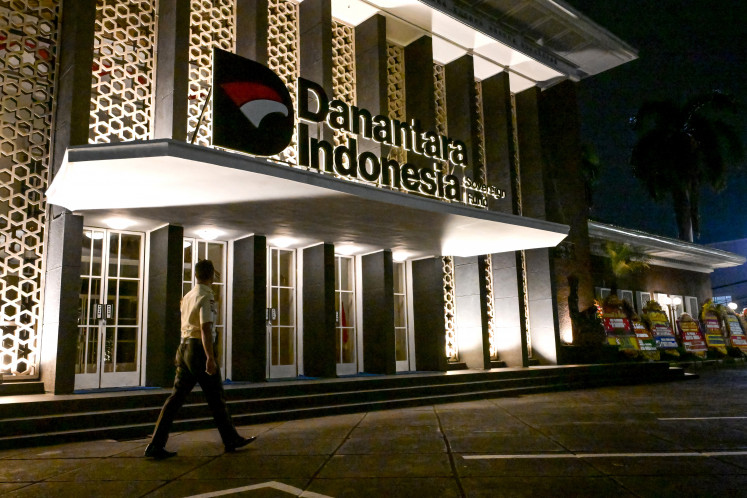CSIS celebrates 50 years as it looks to the future
President Joko “Jokowi” Widodo joined other key political figures to congratulate the CSIS on its achievement, saying that the organization had played an instrumental role in educating the nation.
Change text size
Gift Premium Articles
to Anyone
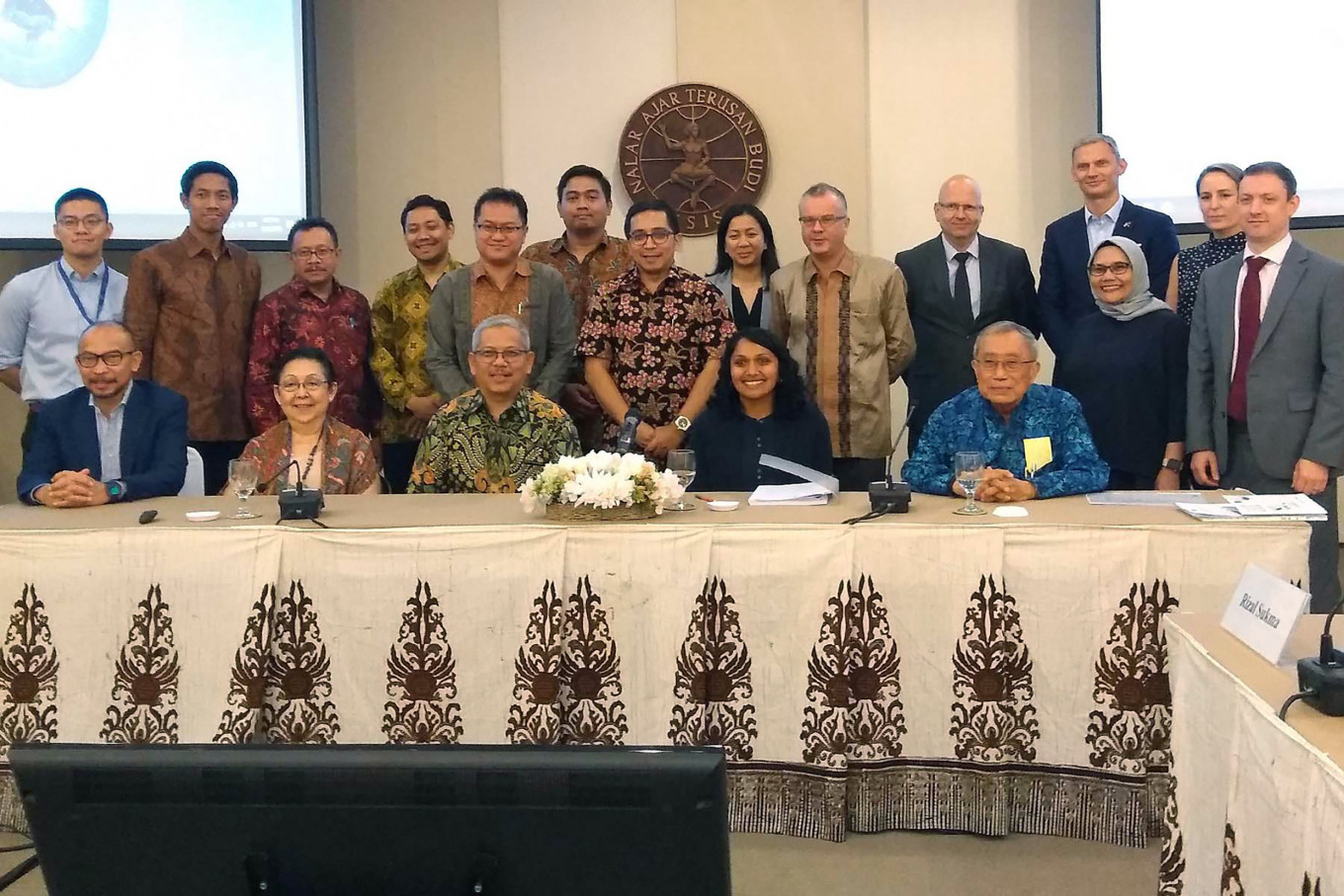
T
he Centre for Strategic and International Studies (CSIS) celebrated its golden jubilee on Wednesday in a low-key anniversary party during which the think tank's leadership pledged to contribute more to improving the excellence in research and building the nation’s character.
President Joko “Jokowi” Widodo joined other key political figures to congratulate the CSIS on its achievement, saying that the organization had played an instrumental role in educating the nation.
“As a think tank with an international reputation, I hope the CSIS can continue to provide insights to members of the public, as well as improve the quality of policies in the country,” Jokowi said in a statement.
Former vice president Jusuf Kalla in his message, meanwhile, said the CSIS had proven its critics wrong by remaining independent, despite its ties to former strongman Soeharto.
“Many have doubted the CSIS’ independence, but over time, it contributed ideas and insights for the betterment of this nation. Not too many people thought the think tank would last this long,” Kalla said.
As part of the golden jubilee celebration, the CSIS also launched the book “50 Years of CSIS: Ideas and Policy in Indonesia”, which chronicled the growth of the Jakarta-based think tank.
The CSIS started as a collective of like-minded thinkers and activists and is now one of the most respected research organizations in the region.
“The CSIS is always keen to contribute to the nation and society in general. Our main mission […] is none other than nation-building and character-building […] The center is driven by the spirit of humanity, unity of the nation and peace,” Harry Tjan Silalahi, cofounder of the CSIS, wrote in the opening chapter of the book.
Harry recalled that one of the first missions of the think tank had been mostly humanitarian in nature, including when it was actively involved in the release of political prisoners of the Indonesian Communist Party (PKI) and during a program to assist people of Chinese descent to claim Indonesian citizenship.
“We hope that this guiding principle can be passed down to the new generation; a mission to create social justice for all,” Harry Tjan wrote.
Fellow cofounder Jusuf Wanandi, meanwhile, said in the introduction of the book that the CSIS had always been motivated by the intention to help craft policies for the fledgling New Order government and doing so outside of the bureaucratic structure.
“This way, we can concentrate on long-term policies that could not be entertained by a bureaucracy already overwhelmed by daily issues and challenges,” Jusuf wrote.
In his speech at the ceremony, Jusuf pledged that the CSIS would continue contributing to the nation’s efforts to uphold social justice.
“This journey is not just about organizational progress, but it has been a struggle to join the effort to develop this nation and we want to continue doing that,” Jusuf said.
The CSIS was founded in 1971, first as a forum for the discussions and activities of several groups of Indonesian scholars, including students who had graduated abroad and activists based in Indonesia in the 1960s.
With the support of Ali Moertopo and Soedjono Hoemardani, who were close confidants of Soeharto, the CSIS was tasked with research and analysis on national development for the government.
After the collapse of the New Order in the late 1990s, the CSIS, despite its ties with Soeharto’s regime, found itself at the forefront of a landscape that was once more democratic and transparent.
In the 2019 presidential election, the CSIS, which partnered with the Cyrus Network pollster, accurately predicted the result of President Joko “Jokowi” Widodo’s reelection, with a mere 0.12 percent margin of difference from the actual count.
In the past few years, the institution has been recognized as one of the most influential think tanks globally, according to the 2020 Global Go To Think Tank Index.
CSIS executive director Philips J. Vermonte pledged that the organization would remain independent so that it could continue to strive for scientific excellence.
“The CSIS must relentlessly campaign in support of evidence-based policy that will benefit the government, the private sector and civil society,” Vermonte said.



